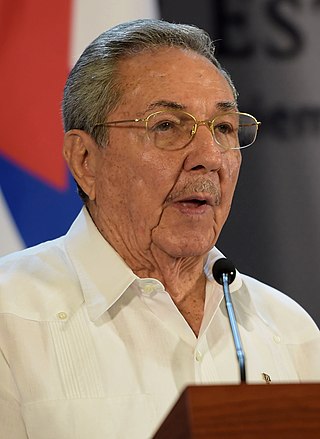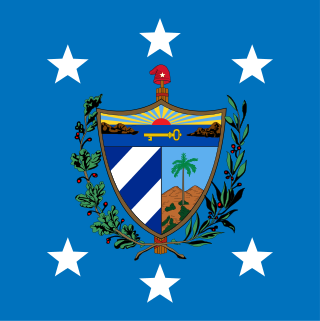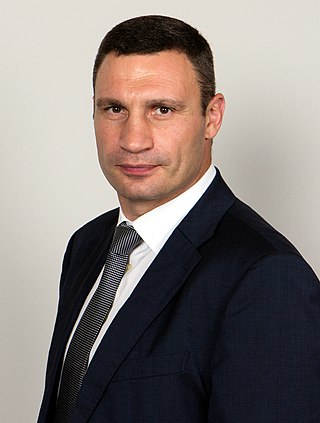| |||||
| Decades: | |||||
|---|---|---|---|---|---|
| See also: | |||||
This article covers events in the year 2023 in Cuba.
| |||||
| Decades: | |||||
|---|---|---|---|---|---|
| See also: | |||||
This article covers events in the year 2023 in Cuba.

Cuba's foreign policy has been fluid throughout history depending on world events and other variables, including relations with the United States. Without massive Soviet subsidies and its primary trading partner, Cuba became increasingly isolated in the late 1980s and early 1990s after the fall of the USSR and the end of the Cold War, but Cuba opened up more with the rest of the world again starting in the late 1990s when they have since entered bilateral co-operation with several South American countries, most notably Venezuela and Bolivia beginning in the late 1990s, especially after the Venezuela election of Hugo Chávez in 1999, who became a staunch ally of Castro's Cuba. The United States used to stick to a policy of isolating Cuba until December 2014, when Barack Obama announced a new policy of diplomatic and economic engagement. The European Union accuses Cuba of "continuing flagrant violation of human rights and fundamental freedoms". Cuba has developed a growing relationship with the People's Republic of China and Russia. Cuba provided civilian assistance workers – principally medical – to more than 20 countries. More than one million exiles have escaped to foreign countries. Cuba's present foreign minister is Bruno Rodríguez Parrilla.

Cuba has had a socialist political system since 1961 based on the "one state – one party" principle. Cuba is constitutionally defined as a single party Marxist–Leninist socialist republic with semi-presidential powers. The present Constitution of Cuba, which was passed in a 2019 referendum, also describes the role of the Communist Party of Cuba to be the "leading force of society and of the state" and as having the capability of setting national policy, and First Secretary of the Communist Party is the most powerful position in Cuba. The 2019 Constitution of Cuba identifies the ideals represented by Cuban independence hero José Martí and revolutionary leader Fidel Castro as the primary foundation of Cuba's political system, while also stressing the importance of the influence of the ideas of Marx, Engels, and Lenin.

Raúl Modesto Castro Ruz is a Cuban retired politician and general who served as the first secretary of the Communist Party of Cuba, the most senior position in the one-party communist state, from 2011 to 2021, and President of Cuba between 2008 and 2018, succeeding his brother Fidel Castro.

The Cuban Revolution was the military and political effort to overthrow Fulgencio Batista's dictatorship which reigned as the government of Cuba between 1952 and 1959. It began after the 1952 Cuban coup d'état which saw former president and military general, Fulgencio Batista topple the nascent Cuban democracy and consolidate power. Among those opposing the coup was Fidel Castro, then a novice attorney who attempted to contest the coup through Cuba's judiciary. Once these efforts proved fruitless, Fidel Castro and his brother Raúl led an armed attack on the Cuban military's Moncada Barracks on 26 July 1953. Following the attack's failure, Fidel Castro and his co-conspirators were arrested and formed the 26th of July Movement (M-26-7) in detention. At his trial, Fidel Castro launched into a two hour speech that won him national fame as he laid out his grievances against the Batista dictatorship. In an attempt to win public approval, Batista granted amnesty to the surviving Moncada Barracks attackers and the Castros fled into exile. During their exile, the Castros consolidated their strategy in Mexico and subsequently reentered Cuba in 1956, accompanied by Che Guevara, whom they had encountered during their time in Mexico.

Radio Havana Cuba is the official government-run international broadcasting station of Cuba. It can be heard in many parts of the world, including the United States, on shortwave frequencies. Radio Havana Cuba, along with Radio Rebelde, Cubavision Television, and other Cuban radio and television, broadcasts to North, Central and South America via free-to-air programming from the Hispasat 30W-6 satellite over the Atlantic Ocean and worldwide via Internet streaming.

The president of Cuba, officially the president of the Republic of Cuba, is the head of state of Cuba. The office in its current form was established under the Constitution of 2019. The President is the second-highest office in Cuba and the highest state office. Miguel Díaz-Canel became President of the Council of State on 19 April 2018, taking over from Raúl Castro, and has been President of Cuba since 10 October 2019.

Vitalii Volodymyrovych Klychko, known as Vitali Klitschko, is a Ukrainian politician and former professional boxer. He serves as mayor of Kyiv, and is also head of the Kyiv City State Administration, having held both offices since June 2014. Klitschko is a former leader of the Petro Poroshenko Bloc, and is a former member of the Ukrainian Parliament. He became actively involved in Ukrainian politics in 2005 and combined this with his professional boxing career until his retirement from the sport in 2013. He holds a Doctoral Degree (Ph.D.) from Kyiv University's Physical Science Department.

Elections in Cuba are held at municipal, provincial, and national levels. Cuba is a one-party state, with the Communist Party of Cuba being described as the "superior driving force of the society and the state" in the Constitution of Cuba, and the communist party is the only official political party. Elections in Cuba are not considered democratic because the government does not allow free and fair voting.

Cuba, officially the Republic of Cuba, is an island country, comprising the island of Cuba, Isla de la Juventud, and 4,195 islands, islets and cays surrounding the main island. It is located where the northern Caribbean Sea, Gulf of Mexico, and Atlantic Ocean meet. Cuba is located east of the Yucatán Peninsula (Mexico), south of both Florida and the Bahamas, west of Hispaniola, and north of Jamaica and the Cayman Islands. Havana is the largest city and capital. Cuba is the third-most populous country in the Caribbean after Haiti and the Dominican Republic, with about 10 million inhabitants. It is the largest country in the Caribbean by area.
Juana de la Caridad "Juanita" Castro Ruz was a Cuban-American activist and writer, as well as the sister of Fidel and Raúl, both former presidents of Cuba, and Ramón, a key figure of the Cuban Revolution. After collaborating with the Central Intelligence Agency in Cuba in 1964, she lived in the United States until her death.

Relations between Cuba and Venezuela were established in 1902. The relationship deteriorated in the 1960s and Venezuela broke relations in late 1961 following the Betancourt Doctrine policy of not having ties with governments that had come to power by non-electoral means. A destabilizing factor was the Cuban support for the antigovernment guerrilla force that operates in remote rural areas. Relations were reestablished in 1974.
Arnaldo Coro Antích was a Cuban radio host, academic and popular amateur radio operator. He was a cofounder of Radio Havana and hosted the English language Radio Habana show DXers Unlimited which broadcasts twice a week. He was also a professor of broadcasting at the University of Havana.

Cuba–Russia relations reflect the political, economic and cultural exchanges between Cuba and Russia. These countries have had close cooperation since the days of the Soviet Union. Russia has an embassy in Havana and a consulate-general in Santiago de Cuba. Cuba has an embassy in Moscow and an honorary consulate in Saint Petersburg. Around 55,000 people of Russian descent live in Cuba.

Miguel Díaz-Canel Bermúdez is a Cuban politician and engineer. He has served as the 8th First Secretary of the Communist Party of Cuba since 2021 and as the 17th President of Cuba since 2019. In his capacity as First Secretary he is the most powerful person in the Cuban government.

Parliamentary elections were held in Cuba on 11 March 2018 to elect members of the National Assembly of People's Power. Prior to the elections, President Raúl Castro declared he would not be seeking a new term, and a new President of the Council of State will be elected by the National Assembly. His deputy, Miguel Díaz-Canel, was subsequently elected as the new president. However, Castro remained the First Secretary of the Communist Party of Cuba, the most senior position in the country.

The Wagner Group, officially known as PMC Wagner, is a Russian private military company (PMC) controlled until 2023 by Yevgeny Prigozhin, a former close ally of Russia's president Vladimir Putin. The Wagner Group has used infrastructure of the Russian Armed Forces. Evidence suggests that Wagner has been used as a proxy by the Russian government, allowing it to have plausible deniability for military operations abroad, and hiding the true casualties of Russia's foreign interventions.

Parliamentary elections were held in Cuba on 26 March 2023 to elect members of the National Assembly of People's Power.
Casualties in the Russo-Ukrainian War include six deaths during the 2014 annexation of Crimea by the Russian Federation, 14,200–14,400 military and civilian deaths during the War in Donbas, and up to 500,000 estimated casualties during the Russian invasion of Ukraine.
The combatants of the war in Donbas included foreign and domestic forces.
The Russo-Ukrainian War has seen foreign volunteers participate on both sides of the conflict. Most foreign fighters joined the conflict during one of two waves. The first wave happened from 2014 to 2019 during the War in the Donbas and consisted of approximately 17,241 foreign fighters. The second wave is considered by researchers to have been much larger and began in 2022 after the Russian invasion of Ukraine.